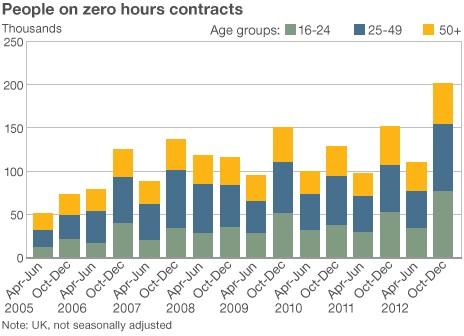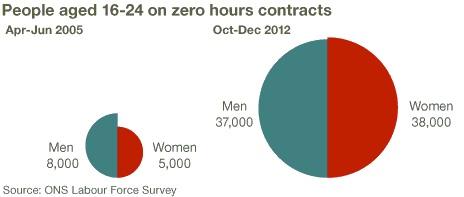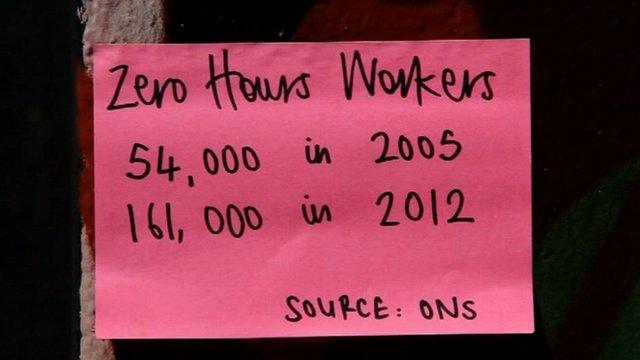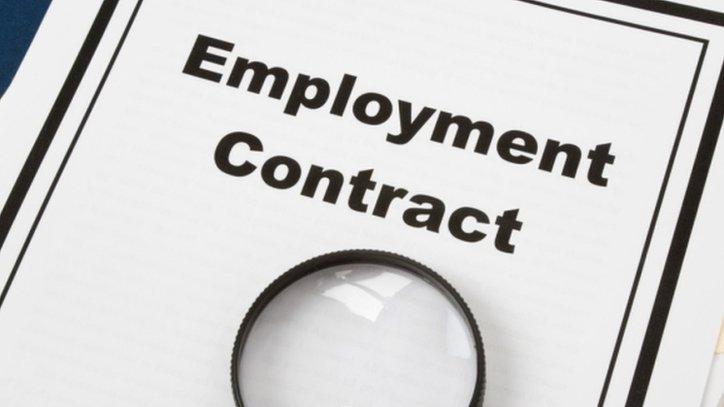Record number of 16-24s on zero hours contracts at work
- Published

A record number of young people are working in insecure jobs with no guarantee of regular hours or regular pay.
Figures from the Office of National Statistics (ONS) show the number of 16 to 24-year-olds on so-called zero hours contracts has more than doubled since the start of the economic downturn.
Critics say they often lead to exploitation.
Companies say they keep young people in work who might otherwise be unemployed.
Zero hours contracts started on the high street in sectors like fast food and retail.
Under the terms of the contracts, bosses can legally change shifts each week.
Staff can be given extra hours when it's busy but see their shifts cut to zero when it's quiet.
In most cases employees are expected to be available for work but can legally turn down a shift if they don't need it.
"Zero hours contracts do have some advantages," said Vidhya Alakeson at the Resolution Foundation, which studies the labour market.
"If you want to combine work with studying or childcare then you can juggle things around more easily.
"If you're trying to raise a young family and need a stable income, you can see your hours cut right down to zero without any notice and without any redundancy rights."

The number of 16 to 24-year-olds on zero hours contracts rose from 35,000 in 2008 to 76,000 in 2012.
Younger workers are far more likely to be given this type of contract with one in every three zero hours employees now under the age of 25.
"You can't live without worrying if you can pay your rent," said 22-year-old Jessica.
"It's all right for students or people who live at home but if you have to support yourself then you need security and a set wage every month."

The figures aren't seasonally adjusted
Other zero hours workers say they often have shifts added, cancelled or changed at the last minute.
Other young workers say that zero hours contracts can work well especially for staff that need to juggle studying and earning money.
"I work for a major cinema chain and I'm on a zero hours contract," said 20-year-old Matt.
"I've never had an issue with it because I'm good at my job. Those who are not so good end up with fewer shifts, so it's a fair system."
Groups representing businesses claim that the rise of zero hours contracts and part-time work has helped save jobs through tough economic times.
Neil Carberry at the CBI said: "It's zero hours contracts and other forms of flexible working that mean there are half a million fewer unemployed people than there might otherwise have been."
Follow @BBCNewsbeat , externalon Twitter
- Published28 April 2013

- Published14 August 2012

- Published19 September 2012
